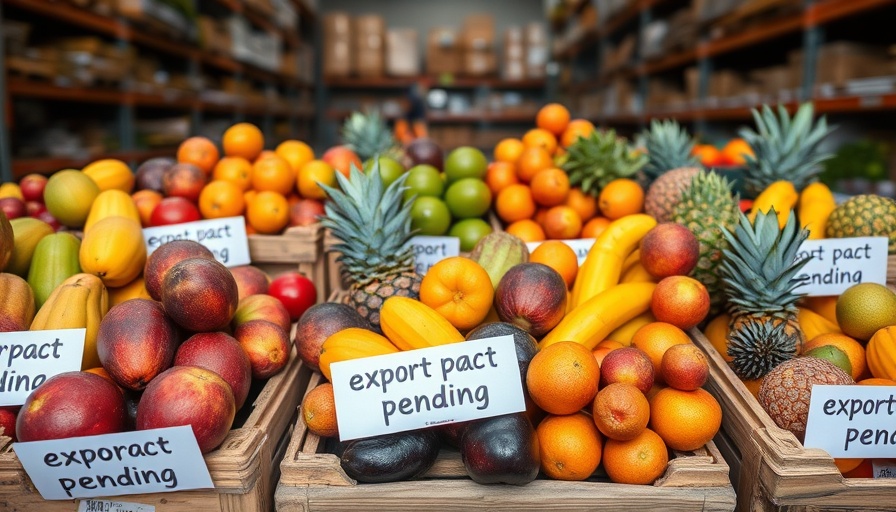
Exploring the Uncertain Horizon of Malagasy-French Energy Projects
In April 2025, the announcement of an energy sector agreement between French President Emmanuel Macron and Madagascar's Minister of Energy, Olivier Jean-Baptiste, sparked hopes for a brighter economic collaboration between the two nations. This partnership was touted as strategic, with potential investments in essential areas like renewable energy and critical minerals. However, the reality of these agreements seems far less encouraging. As professionals within the energy sector, understanding the underlying challenges of such partnerships is crucial.
Unpacking the Challenges: What Lurks Beneath the Surface?
Despite bullish projections, the Malagasy-French energy projects like the €600 million Volobe General Hydroelectricity Company's plans appear fragmented. Experts point to various hurdles, including bureaucratic inefficiencies, economic instability, and a risk of corruption that can undermine the potential of such international agreements. Recent reports indicate that the structural issues faced by Madagascar are not just limited to the energy sector; they extend to governance and infrastructure as well, impacting development across the country.
The Role of Renewable Energy: A Continent at a Crossroads
Renewable energy is a cornerstone not only for Madagascar but for the entire continent as stakeholders embrace a greener future. The AfCFTA (African Continental Free Trade Area) reinforces the need for regional energy cooperation to promote sustainable economic growth amidst challenges posed by climate change. As Madagascar aims to develop its clean energy capacity, it must navigate the complexities of balancing both national interests and international partnerships. The alignment with French energy firms could serve as a double-edged sword, potentially enhancing local capabilities while also risking dependency.
The Impact of Global Market Trends: What Lies Ahead?
The global shift towards clean energy presents both obstacles and opportunities for the Malagasy economy. With the mining of critical minerals crucial for renewable technologies like batteries and solar panels, Madagascar's rich mineral resources are positioned to be in high demand. Yet, the challenge remains on how to leverage these resources effectively: ensuring fair deals and engagement with local communities while mitigating the risks of neocolonial practices. Critical examination of related agreements is essential to avoid repeating past mistakes associated with extractive industries.
A Call for Local Empowerment amid International Interests
The importance of local engagement cannot be overstated. As international stakeholders move in, empowering local communities should play a central role in the development narrative. Initiatives focused on education, sustainable practices, and local governance would pave the way for true economic growth and self-sufficiency. Moreover, embracing Afrocentrism could inspire policies that prioritize the rights and voices of the Malagasy people. Only through understanding and harnessing their cultural heritage can Madagascar ensure that these partnerships yield true dividends for its citizens.
Navigating a Future of Uncertainty: The Professional Perspective
Professionals and stakeholders observing the Malagasy-French projects must recognize the complex interplay of international relations, local governance, and economic development. Understanding these factors is crucial to navigating the uncertain horizon.
In light of these developments, professions engaged in economic development should prioritize transparency and ethical partnerships. As Madagascar relies heavily on foreign investment, how can stakeholders innovate in ensuring projects do not just serve corporate interests but also the local populace? Addressing issues such as corruption, sustainable practices, and community-centered approaches in project design is imperative for progress.
Conclusion: Moving Forward Together
The collaborative potential between Madagascar and France represents both a moment of hope and a call for critical engagement. As these energy projects unfold, it is vital for all parties involved to ensure alignment with governance standards, ethical practices, and local empowerment. As professionals, recognize your role in shaping these outcomes and fostering sustainable pathways for Madagascar’s future.
 Add Row
Add Row  Add
Add 




Write A Comment